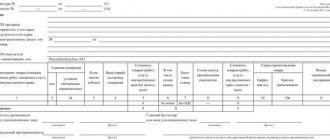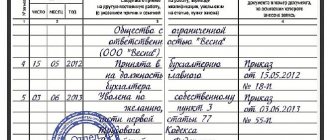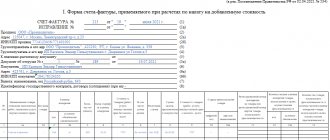After receiving pension status, most people prefer to continue working - these are the realities of today. Elderly employees have behind them knowledge, experience, qualifications and other “riches” that come with years. Unfortunately, these often include health problems, which means private sick leave. A worker of retirement age does not always want and can adapt to changing requirements or learn new skills; there are difficulties regarding personal relationships in the work team, especially if he has to obey a young boss.
There are plenty of reasons why an employer would want to see such an employee retire. But what if the employee sees it differently? How to comply with the dismissal procedure on legal grounds, without discriminating against the dismissed person based on age?
If a retired employee himself wants to resign, then he just needs to submit an application for dismissal due to retirement
What are the advantages of pensioners
According to the provisions of the current Labor Code, pensioners are equal in rights and responsibilities to all other employees (Article 3 of the Labor Code of the Russian Federation).
But in some cases, retirement age guarantees certain benefits at work.
- According to the law, age cannot be a reason for refusal of employment (Article 64 of the Labor Code of the Russian Federation).
- A retired WWII veteran, if he continues to work, can choose the time for his vacation (Clause 1, Article 15-16 of Federal Law No. 5 of January 12, 1995).
- If desired, an employee of retirement age can take additional unpaid leave of up to 14 days.
- Working pensioners are exempt from paying property tax.
- Older employees receive certain preferences when purchasing vouchers to sanatoriums and other health institutions.
It is important to know what mistakes to avoid with retired employees
Do I need to quit my job to get indexed?
Since 2016, when the indexation of pensions for working pensioners was suspended, all employers were required to submit an additional reporting form. This is a report in the SZV-M form, which reflects all employees officially employed by a particular employer.
Based on information from SZV-M, representatives of the Pension Fund of the Russian Federation received information about the employment of pensioners. If a citizen is listed in the employer’s reporting, it means that he works, receives earnings, and insurance contributions are made in his favor. Consequently, such a Russian is not subject to annual pension indexation.
If an employee is no longer included in monthly reporting, this means that he has stopped working and has every right to indexed payments.
So does a pensioner need to resign in order to receive indexation? To receive an increased state pension right now and index it every year, yes, you will have to end all employment relationships. If there is no urgency, continue working. As soon as you quit, the amount will be recalculated immediately.
Age is not a reason for dismissal
No matter how much an employer would like to fire a retired employee in order to get rid of certain difficulties and make room for younger employees, the law does not allow this.
Dismissal due to retirement is not provided for by law as a separate basis for dismissal. An employee retiring may resign of his own free will on the date specified in the application. The dismissal procedure is standard
Art. 3 of the Labor Code of the Russian Federation clearly states that retirement age cannot in any case be a reason for dismissal.
IMPORTANT INFORMATION! Any insufficiently justified reason for dismissing a pensioner in court in most cases will be regarded as age discrimination, which is fraught with serious consequences for the employer.
Of course, there are many ways in a manager’s arsenal to force someone to write a statement “of their own free will.” But if the pensioner actually does not have such a desire, but has the determination to defend the violated rights, then in court the employer looking for easy ways is practically doomed.
FOR YOUR INFORMATION ! The wording “at their own request” in relation to employees of retirement age is appropriate only if there is their good will. In this case, they can do without the obligatory warning for everyone 2 weeks before leaving (Article 80 of the Labor Code of the Russian Federation). They can exercise this right once, indicating in the application: “in connection with retirement.” The corresponding entry will appear in the work book.
How to fire him if he doesn't want to?
Liquidation of a company or reduction of staff are conditions for the removal from the workforce of employees of retirement or pre-retirement age, whose consent is not required to make changes (Article 178 of the Labor Code of the Russian Federation). All employees, regardless of age, receive a monthly allowance.
There are other grounds for dismissal from a position.
Reasons for dismissal:
- the employee being under the influence of drugs or alcohol;
- frequent absenteeism or tardiness;
- the employee’s refusal to move with the company to another city;
- reduction of staff (including during reorganization).
Some organizations have a system for confirming the qualifications of employees, which is carried out at a certain time interval.
If a working pensioner has lost his qualifications after recertification and refused to move to another position, then the removal of the employee is completely acceptable (LC, Article 81, paragraph 3).
How to correctly record the grounds for dismissal?
A common reason is the recording of lateness, which can only be detected if the working hours are mentioned in the contract (its beginning, end, duration of the lunch break).
Evidence may include written testimony from a security guard or CCTV footage.
In the event of a gross disciplinary violation (example: intoxication), the boss or another employee draws up a report stating the presence of inappropriate behavior.
Additionally, signatures of other witnesses (at least two) are affixed.
Algorithm for drawing up documents:
- document execution;
- drawing up an explanatory note by the employee;
- issuance of a decree;
- familiarization of the pensioner with the document.
If the document was read aloud to the pensioner, but he refused to sign, then this behavior is recorded in the document. Signatures of those present (with date) are placed in the same way, confirming the fact of refusal.
IMPORTANT. A pensioner's membership in a trade union organization does not allow him to complete the dismissal procedure without obtaining the consent of the human rights association.
What if we come to an agreement?
An agreement between the parties is the most convenient way to say goodbye to an employee who formally has no reason to be fired. With a pensioner who does not want to enjoy the joys of life without daily work, you need to tactfully talk, explaining the manager’s reasons and offering financial support. Most likely, the wisdom of years will tell the employee that it is not worth fighting for a place in an organization where he is no longer needed. It will take the emotional subtlety of the employer for this conversation to take place without mutual offense.
If an agreement is reached, an agreement is drawn up, on the basis of which the employment contract is terminated.
IMPORTANT! The agreement must reflect the will of both parties and the amount of benefits that the employer will have to pay upon dismissal.
Where to contact
A pensioner who decides to resign does not require a special application to government bodies and departments. According to the general rules, indexation of pensions after dismissal is carried out without application. This means that no applications or appeals are required to be submitted to the Pension Fund.
The system works like this:
| Step #1 | The pensioner wrote a letter of resignation and officially terminated his employment or civil relationship with the employer. |
| Step #2 | The employer submits reports using the SZV-M form. The pensioner's report indicates the month in which the dismissal occurred. For example, if he quit on September 1, then the information is included in the report for September. And only from next month the pensioner will be completely excluded from SZV-M, of course, subject to the complete termination of labor or civil relations. |
| Step #3 | Representatives of the Pension Fund of Russia process reports in the SZV-M form. |
| Step #4 | Pension indexation. Recalculation is carried out only from the 1st day of the month following the month in which the dismissal occurred. |
| Step #5 | The citizen receives an increased amount of payments on a card, savings book or in cash. |
But the recount does not always follow the specified scheme. And if the pensioner has not received an increased payment a month after dismissal, then it is necessary to contact the Pension Fund for clarification.
The law is the same for everyone
The remaining grounds for releasing a pensioner from his position are no different from those provided for all categories of employees.
Like any other subordinate, an older employee may lose his job if:
- violates the work schedule and discipline in the team (truancy, being late, appearing intoxicated, etc.);
- the company's staff is forced to reduce;
- the working conditions have changed, no longer suiting the pensioner, and there are no other vacant positions of suitable qualifications in the company or he does not agree to them;
- the employer's organization is liquidated;
- his inadequacy for the position will be proven.
There is no special procedure for dismissing pensioners due to staff reduction. Therefore, formalize your dismissal according to the standard layoff procedure .
Reasons for dismissal
Possible grounds for dismissal (Article 81 of the Labor Code) are as follows:
- liquidation of the enterprise;
- staff reduction;
- mismatch between the employee’s qualifications and the complexity of the job;
- violation of labor discipline, absenteeism or appearing at work under the influence of alcohol or other toxic intoxication;
- theft of property or embezzlement;
- disclosure of state or commercial secrets;
- taking actions in relation to goods or valuables that led to a loss of confidence in the employee;
- the teacher commits immoral acts;
- providing false documents when applying for a job.
At the same time, it is prohibited to dismiss employees who are on vacation or sick leave.
When dismissal due to staff reduction, preference should be given to specialists with higher qualifications and other qualities. At the same time, experienced employees, even retirees, have advantages when reducing staff.
In order to dismiss a pensioner under the clause of inadequacy of qualifications, a special re-certification commission must be assembled, which must issue an appropriate conclusion.
If there is a negative conclusion, the pensioner can be dismissed quite legally.
In addition, the employer can send the pensioner to a medical examination. Such a commission gives an opinion on the possibility of a pensioner working in a given position due to his state of health.
The pensioner's work has become incomplete
Inconsistency with the position is the main “headache” of the employer associated with retired employees. When a person is no longer able or does not want to work as required, of course, the employer has the right to part with him. But the manager himself is not authorized to objectively assess the job suitability of employees - for this purpose, a special commission is created to certify the employee. If its verdict is “loss of certain skills,” then an employee of retirement age who is no longer suitable for his position must be offered other vacancies that will correspond to his current qualifications. As a rule, these will be lower-level positions that pay significantly less. If the employee disagrees or there are no suitable vacancies, dismissal is lawful.
If an elderly person cannot fully fulfill his duties due to poor health, a verdict from the commission will again be needed - just not the certification one. And the medical one. The employer himself cannot make decisions about whether an employee’s health meets job requirements. The procedure for dismissal after a verdict is the same as in the case of recertification.
For health reasons: legal framework
An unfavorable health condition that does not allow one to perform job duties (chronic illnesses, injury) according to the job description allows the company owner to initiate dismissal procedures.
To give the procedure legal status, a medical commission’s conclusion will be required, containing an indication of the disease and a comment assessing the person’s ability to work.
Additional nuance: if there is a position in the company that allows the retiree to perform other duties in accordance with his ability to work, it is offered as an option for a voluntary transition.
An exception is the complete disability of a citizen (Labor Code, Article 83, paragraph 5). The presence of an employee’s refusal and the conclusion of a medical examination do not give the right to terminate the contractual relationship (Labor Code of the Russian Federation, Article 182), and a disabled person is paid a two-week allowance after leaving the company.
When deadlines are pressing
An employer has the right not to renew an employment contract that has expired, even if it is a contract with an employee who has reached the age of a pensioner. This is another legitimate reason to spend it on vacation.
NOTE! If the contract was drawn up for an indefinite period, then it cannot be terminated without reason.
The employer may offer the employee to enter into a fixed-term contract in order to legally dismiss the employee when the term expires. But forcing an employee to agree to this option will be illegal, which can easily be proven in court. Fixed-term contracts with pensioners should be drawn up exclusively with their voluntary consent!
ATTENTION! Art. 59 of the Labor Code prohibits breaking existing contracts in order to conclude urgent ones in their place!
Shall we look for a compromise?
If you cannot find a justified Labor Code reason for dismissing an elderly employee who is no longer satisfactory to the employer, you can look for a way out in which “both the sheep are safe and the wolves are fed.”
For example, instead of a complete release from a position, you can offer a pensioner to switch to part-time, part-time or a shortened week.
Thus, the employee retains his job and self-respect, and the manager saves on wages and saves experienced “staff”, for example, for mentoring and other functions.
The legislative framework
All situations related to employment and termination of an employment contract are regulated by the Labor Code and adopted regulations:
- Federal Law No. 400 dated December 28, 2013 “On insurance pensions”;
- Federal Law of December 17, 2001 No. 173 “On labor pensions in the Russian Federation”;
- Art. 77, 78, 80, 81 Labor Code of the Russian Federation.
Fixed-term contracts, which are regulated by Art. 59 Labor Code of the Russian Federation. According to the law, the period for concluding such an agreement is limited to 5 years. It is convenient for the employer, as it allows the working relationship to end on time and does not require payment of severance pay. But a fixed-term contract can only be concluded with the consent of the candidate.
Protected by the union
If the pensioner subject to dismissal is a member of a trade union organization operating at the enterprise, the employer must obtain consent from this body to terminate the employment relationship.
If there is no response to the employer’s request within a week, the union’s opinion on dismissal may not be taken into account in the future.
If a negative opinion is expressed, this does not mean that the employee cannot be dismissed: the appropriate procedure regarding the dismissal of union members will simply need to be followed.
Dismissal due to inadequacy of the position held
difficult to use such a basis for parting with a pensioner , since it is problematic to confirm the fact that an employee is insufficiently qualified for the position he holds, having worked in it for many years .
Citizens of pre-retirement/retirement age are reluctant to change jobs and, as a rule, work in their last position for a very long time. it is not so easy to prove that after several years of work an employee has insufficient qualifications . Although it is possible. For example, in the case of a software change that an elderly person was unable to fully master.
Before dismissing a pensioner without his consent on this basis, you must:
- Prepare regulations on certification.
- By order, appoint a certification commission.
- Conduct a test of the employee's knowledge and skills.
- Record in the commission’s certification protocol the discrepancy between his position and position.
- The manager must approve the results of the certification.
- Offer the employee in writing another job available in the company and corresponding to his qualifications.
- Issue a dismissal order if there is no suitable job or the employee refuses to switch to it.
IMPORTANT!
there is no direct ban on certification for pensioners working in commercial companies, it is prohibited for government agencies to carry it out for employees over 60 years of age (clause 3 of Decree of the President of the Russian Federation dated February 1, 2005 No. 110 “On certification of state civil servants of the Russian Federation” ). You need to understand: in case of disputes with an older person, the legality of the dismissal procedure will be checked especially carefully .
Memo for employers
Let us summarize the important nuances regarding the dismissal of pensioners.
- Without the consent of a pensioner, it is impossible to dismiss him on the basis of age (Article 3 of the Labor Code of the Russian Federation).
- The court equates controversial reasons for dismissing a pensioner to age discrimination.
- In cases beyond the will of the parties, staff reductions or changes in the terms of the employment contract, the dismissal of pensioners occurs in the same way as other employees.
- A compromise solution may be to transfer the retired employee to a reduced schedule.
Dismissal of a pensioner by agreement of the parties
In the case where the employer is interested in dismissing a pensioner, but he does not want to leave, a compromise is possible in the form of dismissal by agreement of the parties (Article 78 of the Labor Code of the Russian Federation).
The employee and employer must determine terms that are acceptable to both parties. Before issuing an order, we recommend that you sign a bilateral agreement, which states that the parties have reached mutual agreement, and also indicates the date of the upcoming dismissal and other conditions.
For a sample agreement to terminate an employment contract, see here.
Whether payments upon termination of an employment contract by agreement of the parties need to be subject to personal income tax and contributions, you will learn from the publication “Dismissal by agreement of the parties: personal income tax, contributions . ”





